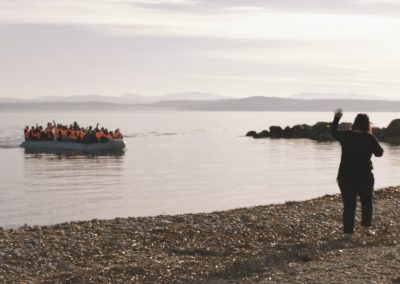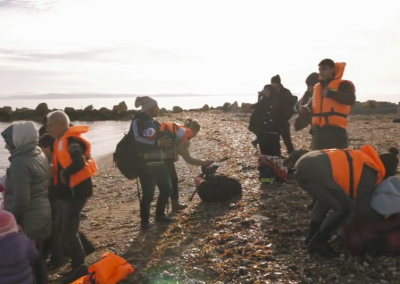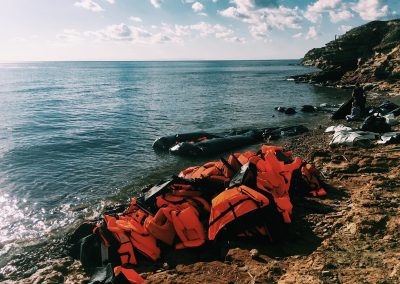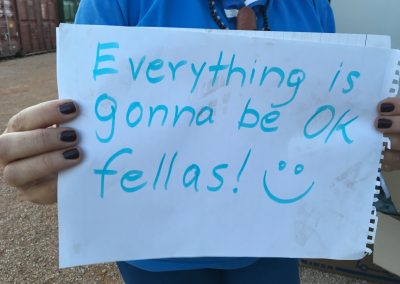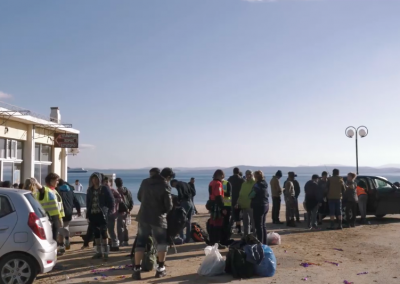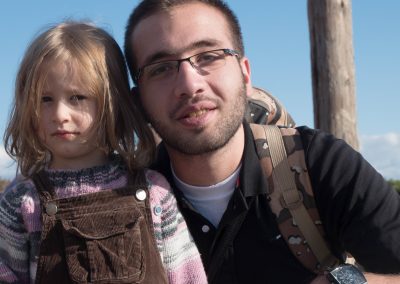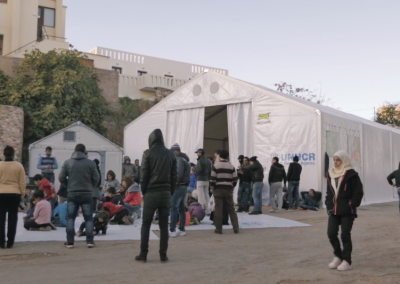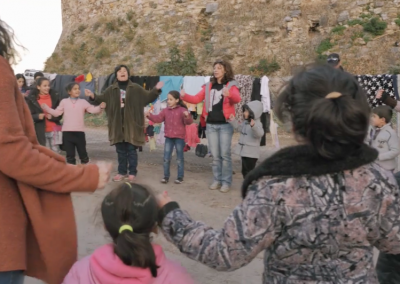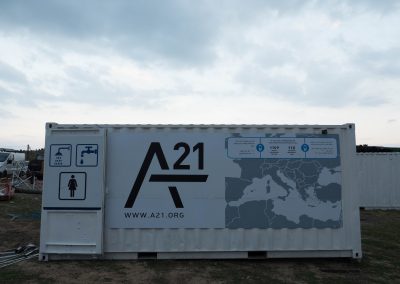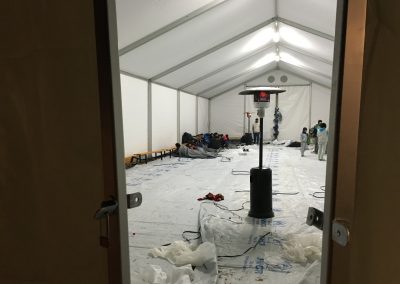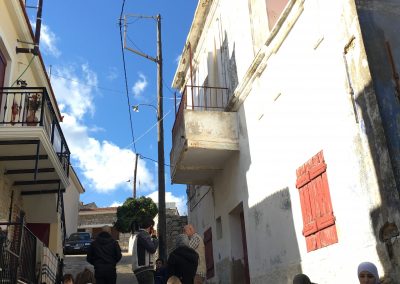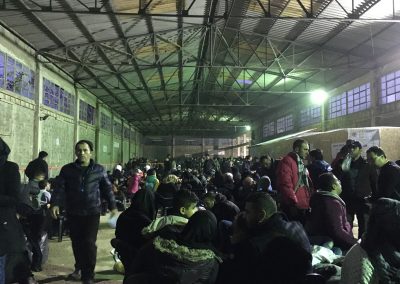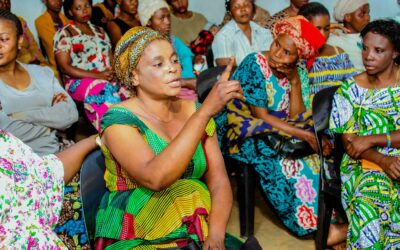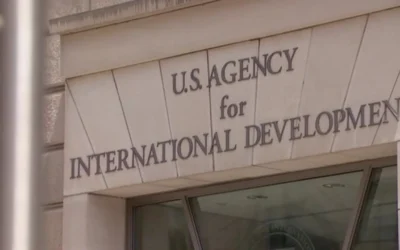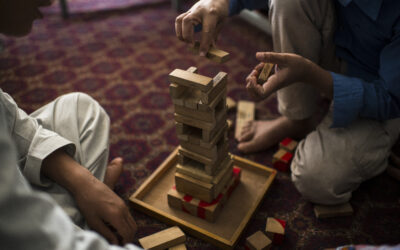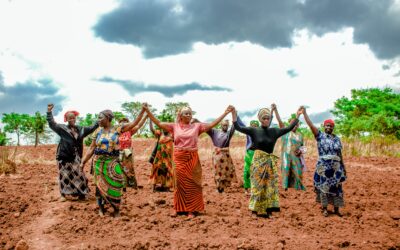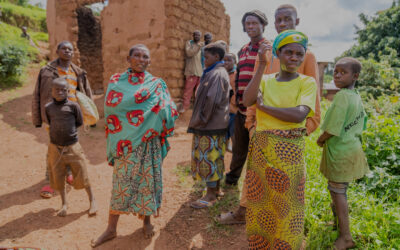“These are just normal people”: reflections from volunteering in refugee camps
There are currently 21 million refugees in the world according to UNHCR. Many are forced to flee their home countries because of conflict or persecution. Crossing to Europe by sea is one way they attempt reach safety. Over 75,000 people have risked their lives to make this journey by sea so far in 2017 alone.
The coast of Greece is one of these main entry points for refugees from Syria, Afghanistan, and Iraq, with 1.3 million people passing through in the last two years. Currently 62,000 refugees are stuck in Greece awaiting relocation or asylum, according to the IRC.
Last year, ODW board member and producer for Wondercamp, Davis Goslin took a trip to the Greek coast to volunteer in refugee camps. We got the chance to chat with Davis about his time in the camps. The following are some reflections about his experience.
What were you doing while at the refugee camps?
I was on Chios Island in Greece working with A21 Campaign (anti-trafficking non-profit) to install sanitary stations in refugee camps. These are places with showers and sinks to put anti-trafficking information on display, so that refugees know the risks when approached by a stranger offering a job. I facilitated the design for the advertisements in three different languages, which was interesting and challenging, but ultimately helped give refugees helpful information as they embarked on this new chapter of their lives.
What were your expectations going into the refugee camps and what was most surprising?
There’s a pretty big stigma about refugees and people from the Middle East. I think that I knew this going in, but at the same time, being there, it was even more clear that these are just normal people who have been uprooted from their lives. When you are standing in the receiving lines, you’re speaking to doctors, lawyers, store owners. They are the ones wealthy enough to buy transport to Europe. They had a well-built, beautiful life in Syria, or other countries, that has been wiped out.
I had no idea what it would be like in the camps. I’ve done a lot of traveling through slums in parts of Africa and I was surprised with the differences of need. I went in thinking this could be a lot of poverty and basic needs, but they didn’t have a ton of physical needs besides needing a blanket.
I found that the best thing I could do was treat them as normal people. By treating them like people, it put a smile on their face. They had seen their homes bombed; fled everything they’d known all of their lives. They had been working with smugglers for at least a couple months, been waiting in a hotel room with 40 or so others, and had no knowledge of what would come next. Then one day they are thrown on a rubber boat with too many people, for the scariest journey of their life. When they arrived they’d be exhausted and feel like their dignity as human beings had been stripped away.
Those were the moments that surprised me the most. When I felt more useful talking to people and enjoying their stories rather than giving things out.
Is there a person or story that stands out to you from your time in the camps?
I met these two refugee college students that were traveling together named Mohammed and Lulu. They had been friends all their lives and had a friend that knew a smuggler. With hopes of reaching Germany, they decided to leave their country. Their attitudes were much more of adventure than fear. They spoke English well and ended up helping at the camps for a while.
The refugees often would come into the camps really early in the morning but by the time they got to processing it’d be 4pm. It would be a crazy line until 1 or 2 in the morning. After my regular job installing the containers, I’d head to help with processing until early in the morning. The two college students helped me process people. They could speak the language and were really helpful. We shared meals together. It was cool to be able to relate to someone.
When you’re here [in the U.S.], you say “there’s those people and I don’t know how to impact them”. But when you’re there, you realize these are normal people you can relate to. Under different circumstances, I could easily be a young person fleeing the place I grew up.
From your perspective, what’s the biggest challenge of the refugee crisis in Europe?
This is an ever-changing, ever-moving world crisis. We were processing 2,000 people a day when I was in Chios. In Europe, the refugee camps are buffers for the town. There’s an island with an influx of people, and in terms of infrastructure, it is not set up for this. In the beginning, all these people slept at a park in the town square. So they put up the refugee camps as a place for them to stay.
There’s not one solution to this kind of massive migration. They may get the process of moving people through figured out. But then, a country may close its borders and maybe 5 days later you have a backup of 8,000-10,000 people. Or, there are times when smugglers run out of rubber boats so there’s no people for awhile. The European Union may make an announcement [about tightening border security] and people won’t migrate that day, or 50 boats come in a day to get to shore before a policy’s implemented.
Another issue is the problem of integration. People are living in camps in Europe and some get stuck. Those people are considered aliens in those lands – that’s how they’re categorized. Sometimes they are trying to move to other countries. Ultimately they’re stuck in these limbo places.
What were the interactions like between the people living in Greece and the refugees?
There’s a large part of the Greek population that are opposed to the refugees, saying that they’re taking away jobs and resources. Greece is already in an economic downward spiral and supporting refugees is something they don’t want to do. And I’ve heard stories of refugees being harassed just for walking down the street.
More of what I saw though was Greeks stepping up and helping. Their grandparents or parents may have been immigrants and knew what it was like. They’d say “we had people showing up on our shores and needed to do something about it”. They also opened their churches for refugees.
There are fisherman who would be out in their boats and get a mayday call. They’d have to go get the boat that’s going down. The fisherman go out and don’t know if they’ll be fishing or rescuing that day. They’re still trying to do their jobs, but they become a rescue boat if needed. There’s a really cool community that has come around and welcomed the refugees. It’s an amazing group of people that have been there since day one.
What was your biggest takeaway from this experience?
I read the news differently now. The refugee crises is not covered well. I don’t think people realize there are refugee camps all over Europe, in France and England and Greece and Italy. They’re everywhere. People with no jobs or resources just trying to find a way to live a normal life. There’s a lack of knowledge about this. So I read the news a lot differently. I’ll think: “that’s one part of the story, but it’s probably not a the whole story.”
What should the world know about life inside the refugee camps?
Imagine you get news that you need to leave your home and you have to fill a backpack. Then you journey for days or months. Usually spending everything you have in savings. You finally get on a boat and everything you own gets soaked. You get off the boat in a new place and have a soaking wet backpack, no money, and are unsure if you’ll ever see your home again. You think: “I hope this place is better. So far they’ve handed me a blanket and given me a place to sleep. I suppose I will wake up in the morning and find out what my future holds.”
The refugees are arriving with a lot of unknowns, which is a vulnerable place to be. They’re waiting for an opportunity. They came from a place that’s very culturally different and have to be patient. Everything in their life is slightly different and that can be frustrating.
You can stand with refugees and help alleviate this crisis by giving to our relief fund for refugees.
Watch this video produced by Wondercamp to see more of Davis’ experience:
Refugee Crisis | Chios Volunteers from Wondercamp on Vimeo.
Jessinia Ruff is an ODW Blog Contributor and student at Seattle Pacific University.
More stories of impact
Turning Challenges into Opportunities: Masoka’s Journey of Empowerment
Masoka’s hands are stained with the rich soil of the land she now calls home. A 37-year-old mother of four, she arrived at Dzaleka Refugee Camp in Malawi after fleeing the conflict in her home country, the Democratic Republic of the Congo. The future felt uncertain,...
What Was USAID, and What Now?
USAID has made news headlines constantly over the last few months. You may find yourself wondering: what is USAID, and is One Day’s Wages affected by its dismantling? As a global development organization, we at ODW care deeply about the people who depend on foreign...
Growing Love, One Drop at a Time: How One Woman Turned Her Birthday into a Gift of Clean Water
When Sara, a graphic designer and mother from Oregon, started thinking about how to celebrate her birthday, she decided to do something different—something meaningful. With a belief that “we are all connected… with the power to affect change by how we live our own...
Bridging the Gap: An Update on Our Response to the Funding Freeze
In Matoh, Cameroon, a mother prepares to give birth. Life in a conflict zone means getting to a safe facility with trained health workers is nearly impossible. Fortunately, a new mobile clinic begins offering prenatal care and transportation to a birthing clinic,...
Why We Invest in Women
There’s an old Ghanaian proverb: “If you educate a man, you educate an individual. But if you educate a woman, you educate a family.” On this International Women’s Day, we celebrate the power of women—how their resilience, leadership, and determination transform not...
The Case for Social Inclusion
Today is the World Day of Social Justice! Never heard of it? Never fear, we’re here to fill you in. In 2009, the United Nations General Assembly launched the World Day of Social Justice to recognize our on-going need for inclusive economic development and decent work...
LEARN
Leadership
Transparency
Read the Latest
Contact Us
COLLABORATE
Faith Groups
Schools
Businesses
Get Involved
One Day’s Wages exists to alleviate extreme poverty by investing in, amplifying, and coming alongside locally led organizations in underserved communities.
©2025 One Day's Wages is a registered 501(c)(3) organization | Tax ID #26-2566653 | Privacy policy | Terms of use
P.O. BOX 17575 Seattle, WA 98127 | Contact us

